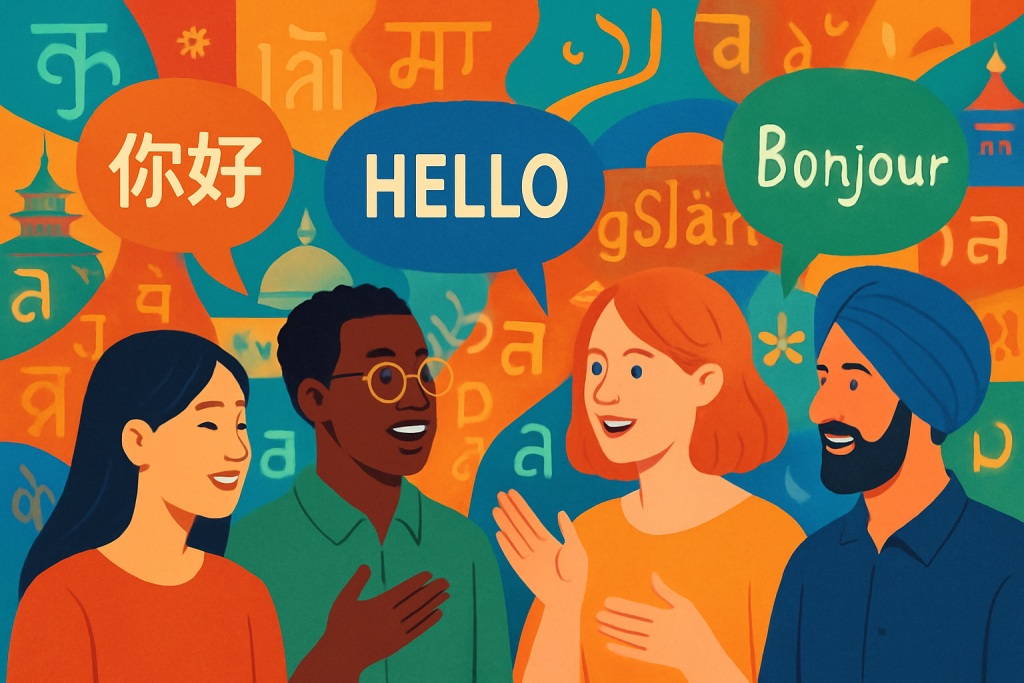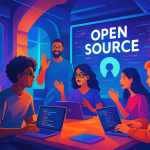Remember the Tower of Babel? Humanity, united by a single language, dared to build a tower reaching the heavens. God, not thrilled with this ambition, scattered them across the earth, confusing their languages and halting construction. Fast forward a few millennia, and Google AI, in a move that feels both divinely inspired and slightly rebellious, just announced a massive expansion of Bard, its language model, now fluent in over 40 languages. It’s like Babel, but this time, instead of scattering us, they’re giving us the universal translator we’ve always dreamed of.
On September 27, 2025, the digital world buzzed with the news: Bard, already a formidable wordsmith, had leveled up its linguistic game. Mandarin, Hindi, Spanish, Arabic, and dozens more tongues have been added to its repertoire. This isn’t just a minor upgrade; it’s a seismic shift in the AI landscape. But to really understand the magnitude of this, we need to rewind a bit.
The race to build the perfect AI has been a marathon, not a sprint. We’ve seen incremental improvements, breakthroughs, and the occasional faceplant. But the quest for multilingual AI has always been particularly challenging. It’s not enough to simply translate words; you need to understand nuance, context, and the subtle cultural cues that give language its richness. Think of trying to explain sarcasm to someone who’s never encountered it before. Now imagine doing that with an AI, across dozens of cultures. That’s the hurdle Google’s engineers have been tackling.
Decoding the Deep Dive: The Technical Stuff
So, how did they do it? The secret sauce, as always, is a complex blend of algorithms, massive datasets, and a whole lot of computational power. The key improvements seem to be focused on two main areas: enhanced natural language processing (NLP), especially for non-Latin script languages, and a deeper understanding of cultural context. The NLP improvements likely involve more sophisticated techniques for handling the complexities of languages like Arabic, Hindi, and Mandarin, which have different grammatical structures and writing systems than English. Think of it like teaching an AI to read hieroglyphics, but instead of just deciphering the symbols, it needs to understand the story they’re telling.
The cultural context understanding is even more fascinating. This isn’t just about translating words; it’s about understanding the unwritten rules, the unspoken assumptions, and the cultural references that give language its meaning. It’s like teaching an AI to understand the difference between a friendly jab and a genuine insult, or to appreciate the humor in a culturally specific joke. To achieve this, Google likely fed Bard a massive diet of culturally diverse texts, movies, music, and other media, training it to recognize and respond appropriately to different cultural contexts. The integration with Google Translate is the cherry on top, allowing for seamless multilingual conversations. It’s like having a real-time interpreter in your pocket, ready to bridge communication gaps wherever you go.
Who Wins, Who Loses? The Ripple Effects
The immediate winners are clear: anyone who speaks a language other than English. This expansion opens up a world of information and opportunities to billions of people who may have previously been excluded from the AI revolution. Imagine a student in rural India using Bard to access educational resources in Hindi, or a small business owner in Spain using it to communicate with customers around the world. The potential for democratization of knowledge and opportunity is immense.
But the implications go far beyond individual users. Companies that rely on multilingual communication, such as translation services, international marketing firms, and global customer support centers, will likely see significant disruption. Will human translators become obsolete? Unlikely, at least in the near term. But their roles will likely evolve, focusing on more nuanced and creative tasks that require uniquely human skills. It’s like the rise of photography didn’t eliminate painters; it simply pushed them to explore new forms of artistic expression.
The financial impact is also significant. Google, of course, stands to gain a massive competitive advantage in the AI market. By offering a truly global language model, they’re positioning themselves as the go-to platform for businesses and individuals seeking to connect with a diverse audience. Other tech giants, like Microsoft and Meta, will undoubtedly scramble to catch up, leading to further innovation and investment in multilingual AI. It’s a tech arms race, but this time, the weapon is language.
Bias, Bots, and the Babel Fish Blues: Ethical and Societal Concerns
Of course, this expansion isn’t without its risks. As Uncle Ben famously said, “With great power comes great responsibility.” And in the world of AI, that responsibility means addressing biases, ensuring accuracy, and preventing misuse. Critics rightly point out the urgency of addressing biases in low-resource languages, where AI-driven search may not yet be fully robust. What happens when Bard learns from biased data in a particular language, perpetuating harmful stereotypes or misinformation? It’s a serious concern that requires careful monitoring and ongoing refinement.
The potential for misuse is also a concern. Imagine malicious actors using Bard to spread propaganda or disinformation in multiple languages, targeting vulnerable populations with tailored messages. It’s a scenario straight out of a dystopian sci-fi novel, and it’s a risk that we need to take seriously. The good news is that Google is aware of these risks and is investing in tools and techniques to mitigate them. But it’s a constant battle, a cat-and-mouse game between the developers and the bad actors.
Perhaps the biggest philosophical question is this: what does it mean to be human in a world where AI can understand and generate language as fluently as we do? Will language barriers become a thing of the past, fostering greater understanding and empathy between cultures? Or will AI-driven communication lead to a homogenization of language and culture, eroding the unique identities that make us who we are? It’s a question that philosophers, linguists, and technologists will be grappling with for years to come.
In the meantime, we can marvel at the progress that has been made. Google’s expansion of Bard is a testament to human ingenuity and a glimpse into a future where language is no longer a barrier to communication. It’s a bold step towards a more connected and understanding world. Now, if only they could teach it to understand sarcasm in Klingon.
Discover more from Just Buzz
Subscribe to get the latest posts sent to your email.


